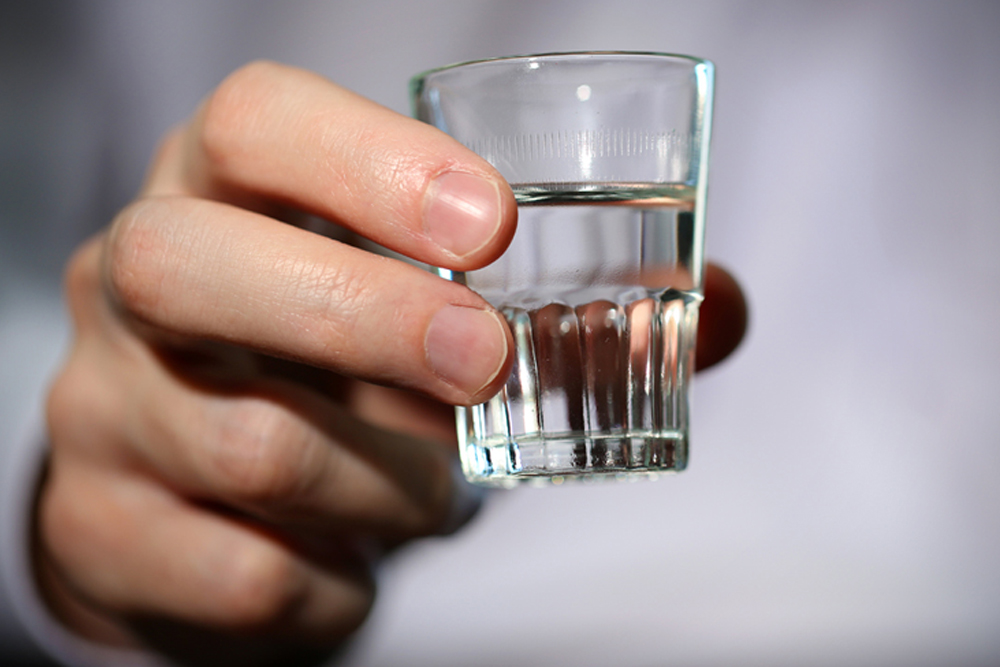Vodka is a kind of alcoholic beverage popular in many countries. It is considered a hard liquor, which means it has more alcohol than other drinks like wine or beer.
People drink vodka in different ways. Some take it by itself over ice (“on the rocks”), while others mix it with other ingredients to create a cocktail. Different cocktail recipes use varying amounts of vodka, so each one has different effects on the body.
Is vodka addictive?
Vodka contains a significant amount of alcohol, which is an addictive substance. Thus, you can get addicted to it if you do not drink moderately.
Compared to other alcoholic drinks, like beer or wine, vodka has a much higher alcohol percentage, so it’s also easier to get addicted to it. Typical brands of vodka contain about 40% alcohol by volume; wine has about 13%, and beer has only about 5%. With that, you can also get drunk faster with vodka.
What happens when I get addicted to vodka?
 An addiction to alcoholic beverages like vodka is also known as alcohol use disorder. This is a common condition, affecting more than 14 million Americans aged 18 and above in 2019. Young people also suffer from alcohol use disorder: about 414,000 kids aged 12 to 17 had this condition in the same year.
An addiction to alcoholic beverages like vodka is also known as alcohol use disorder. This is a common condition, affecting more than 14 million Americans aged 18 and above in 2019. Young people also suffer from alcohol use disorder: about 414,000 kids aged 12 to 17 had this condition in the same year.
The main characteristic of alcohol use disorder is not being able to stop drinking despite its negative impacts on your career, studies, social life, or personal health. Alcohol use disorder comes in three levels: mild, moderate, and severe.
To know if you have alcohol use disorder, try to answer the following questions.
In the past year, have you:
- Ended up drinking more vodka than you intended to?
- Wanted to quit drinking more than once, but could not?
- Spent too much time drinking or getting sick from it?
- Wanted vodka so badly that you couldn’t think of anything else?
- Realized that drinking, or getting sick from it, got in the way of your job, studies, or family responsibilities?
- Kept on drinking even if it caused problems with your family and friends?
- Given up or spent much less time on activities you used to enjoy, just so you can drink vodka?
- More than once gotten yourself into dangerous situations while or after drinking?
- Continued drinking even if it made you feel anxious, depressed, lose your memory, or giving you other mental health problems?
- Found that when you stopped drinking, you experienced withdrawal symptoms like trouble sleeping, shakiness, sweating, nausea, seizures, or hallucinations?
Usually, health professionals will ask you these questions to assess your situation. If you answered “yes” to at least two of them, you may have mild alcohol use disorder. The more “yes” answers you have, the more serious your case is.
If I’m addicted to vodka, what will I do?
 If you find out that you have alcohol use disorder from vodka, seek treatment as soon as you can. Talk to an addiction recovery professional to know the best options for you.
If you find out that you have alcohol use disorder from vodka, seek treatment as soon as you can. Talk to an addiction recovery professional to know the best options for you.
As a first step, you may go to your primary care doctor for an initial assessment. He will evaluate your current health condition, then help you plan out your treatment. He will also tell you if you need medications.
There’s a wide range of evidence-based treatments available for alcohol use disorder. These include medications, behavioral therapies, and mutual support groups.
Medications can be prescribed to you to help you drink less. Three medications are common for alcohol use disorder: naltrexone, acamprosate, and disulfiram. These help with managing withdrawal symptoms, letting you reduce your intake of vodka gradually. Also, these medications help you avoid relapse, so the recovery process is more successful. They are also non-addictive, so they don’t “replace” addiction to alcohol with another substance. Medications can be used alongside behavioral therapies and support groups.
Behavioral treatments are also known as “talk therapy.” Licensed therapists and counselors provide these services. The aim of these treatments is to change your behavior, so you can eventually live a life free of alcohol.
Some examples of behavioral treatments are:
- Cognitive behavioral therapy
- Motivational enhancement therapy
- Contingency management
- Marital and family counselling
- Brief interventions
 Last but not the least, support groups put you in the company of people also recovering from alcohol use disorder. A hugely popular support group is called Alcoholics Anonymous (AA), which relies on what it calls a 12-step program to overcome addiction. The people in support groups encourage each other and share best practices to help each other on the road to recovery.
Last but not the least, support groups put you in the company of people also recovering from alcohol use disorder. A hugely popular support group is called Alcoholics Anonymous (AA), which relies on what it calls a 12-step program to overcome addiction. The people in support groups encourage each other and share best practices to help each other on the road to recovery.
If your case is mild, then you may opt for what’s known as outpatient treatment. Here, you don’t have to stay in a rehab facility for a long time; you just have to go there a few times a week for your scheduled therapies. After each session, you can go back home. With outpatient treatment, you can still go to work and attend to other responsibilities while you’re on the journey to recovery.
However, if your case is more severe, then you may need to go through inpatient treatment. You will have to stay in a rehab facility for a few months until all treatments have been completed. The therapies you get are more intensive, and being in the rehab center ensures that you’re far away from the things that trigger alcohol cravings.
Does treatment for vodka addiction work?
Yes, it does. Even if you have a severe case of alcohol use disorder, you can still benefit from treatment.
According to studies, about a third of people who seek treatment for alcohol use disorder do not display any symptoms after a year. Many also cut back on their drinking significantly and report fewer problems related to alcohol.
Therapies for alcohol use disorder often take time, but they are worth it. Once done, you will be able to live sober once again.
